1000BASE-BX SFP BiDi 1310nm-TX/1550nm-RX 10km DOM Simplex LC/UPC SMF Optical Transceiver Module
High-quality 1G SFP-GE10KT13R15 1000BASE-BX10 bidirectional SFP transceiver, 10 km reach, 1310 nm TX / 1550 nm RX. Ideal for efficient single-fiber links.
- Estimated Delivery : Up to 4 business days
- Free Shipping & Returns : On all orders over $200
The 1000BASE-BX-U SFP BiDi 1550nm-TX/1310nm-RX 10km DOM Simplex LC/UPC SMF Optical Transceiver Module and the 1000BASE-BX-U SFP BiDi 1310nm-TX/1550nm-RX 10km DOM Simplex LC/UPC SMF Optical Transceiver Module are designed to be used in pairs, and the wavelengths must be complementary for proper communication. Specifically, the 1550nm-TX/1310nm-RX module pairs with the 1310nm-TX/1550nm-RX module.
This means that one module transmits at 1550nm and receives at 1310nm, while the other module transmits at 1310nm and receives at 1550nm. The pairing of these complementary wavelengths allows bidirectional data transmission over a single-mode fiber (SMF) link for up to 10 kilometers. The two modules must be used together, as the transmission and reception wavelengths on each side of the link need to align to ensure effective communication. This design helps to maximize fiber usage and is ideal for cost-effective, long-distance communication in networks such as metro networks, data centers, and enterprise setups.
A BiDi optical transceiver (Bidirectional optical transceiver ) is a type of optical transceiver that enables data transmission and reception over a single optical fiber. Unlike traditional optical transceiver s, which require two separate fibers for sending and receiving signals, a BiDi transceiver uses two different wavelengths to transmit and receive data simultaneously on the same fiber. This technology allows for bidirectional communication over a single fiber link, significantly optimizing fiber usage and reducing infrastructure costs.
Typically, BiDi transceiver s use two distinct wavelengths: one for transmission (TX) and another for reception (RX). For example, a common configuration might be 1310nm for transmission and 1490nm for reception. By utilizing these different wavelengths, BiDi transceiver s maximize the capacity of a single fiber, making them an ideal solution in scenarios where fiber resources are limited or expensive.
The main advantages of BiDi optical transceiver s include:
- Fiber resource optimization: Reduces the need for additional fibers, lowering costs associated with fiber installation and maintenance.
- Increased bandwidth utilization: Allows full bandwidth usage of a single fiber by transmitting and receiving data at different wavelengths.
- Simplified network design: Reduces the complexity of network infrastructure, making it easier to deploy in environments with limited fiber availability.
BiDi transceiver s are widely used in various network applications, particularly in situations where there is a need for long-distance transmission, high data rates, or when optimizing fiber usage in dense network environments. They are commonly deployed in metro networks, data centers, and telecommunication system
| Brand | WHGEARLINK |
|---|---|
| Description | SFP 1.25G Tx1310/Rx1550 10Km LC |
| Data Rate | 1.25G |
| Package | SFP |
| Wavelength (nm) | Tx1310nm/Rx1550nm |
| Reach | 10km |
| Connector | LC |
| Operating Voltage | 3.3V |
| TX output (dBm) | -9 ~ -3 dBm |
| RX Sensitivity (dBm) | -23 dBm |
| Power Consumption(W) | <1.0W |
| Operating Temperature | 0 to 70°C (32 to 158°F) |
| Cable Type | SMF |
| Warranty | 3 Years |
Be the first to review “1000BASE-BX SFP BiDi 1310nm-TX/1550nm-RX 10km DOM Simplex LC/UPC SMF Optical Transceiver Module”
Operating data rate Up to 1.25Gb/s
Two tyes:p
A:1310nm FP transmitter /1550nm receiver
B:1550nm DFB transmitter/1310nm receiver
Up to 10km on 9/125µm SMF
Hot-pluggable SFP footprint
BIDI LC/UPC type pluggable optical interface
Low power dissipation
Metal enclosure, for lower EMI
RoHS compliant and lead-free
Support Digital Diagnostic Monitor interface
Single +3.3V power supply
Case operating temperature:
Commercial: 0℃ ~ 70℃
Extended: -20℃ ~ 85℃
Industrial: -40℃ ~ 85℃
Compliant with SFP MSA Specification
Compliant with SFF-8472
Compliant with IEEE 802.3ah
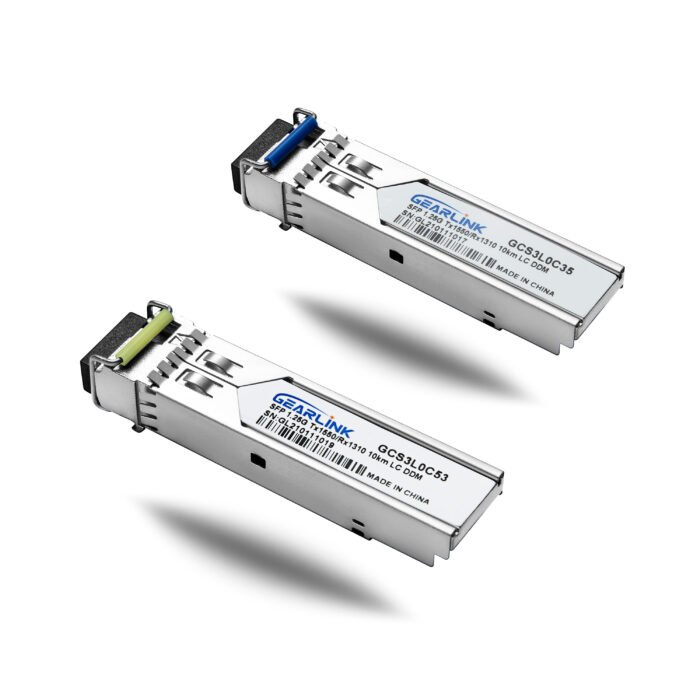
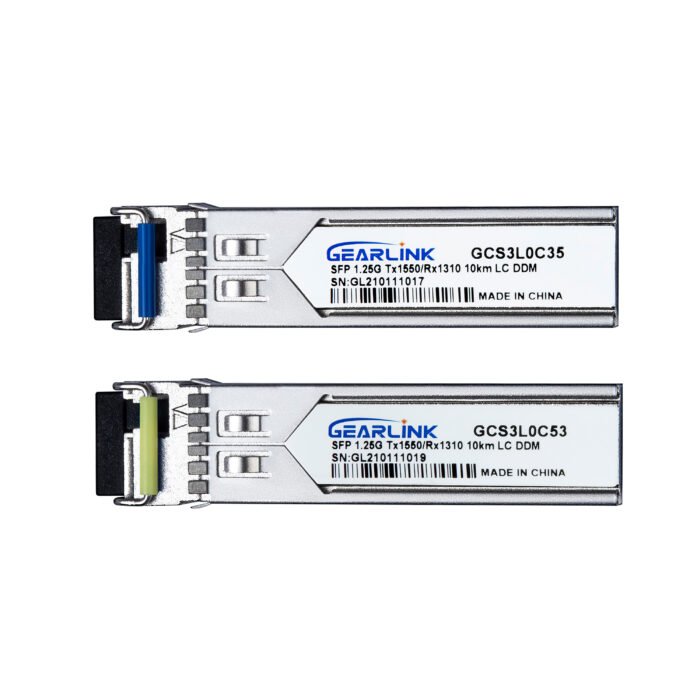
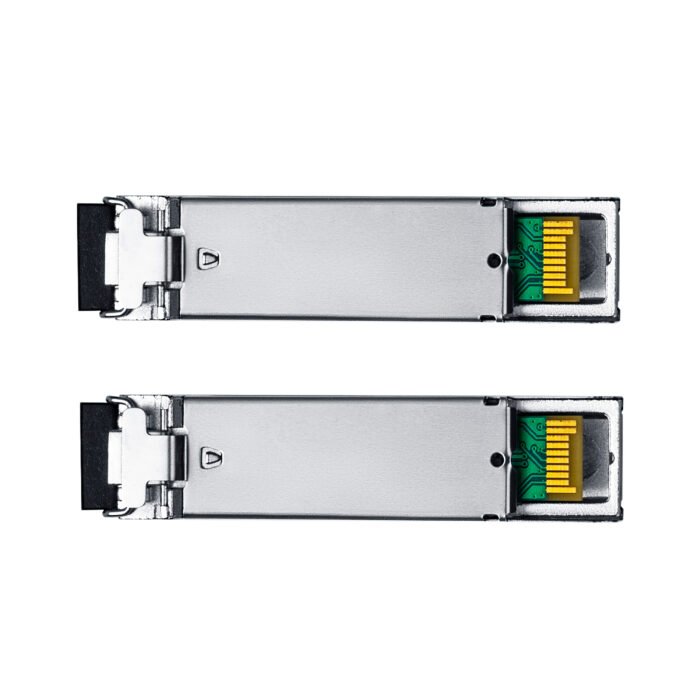
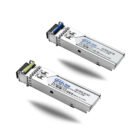
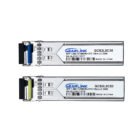
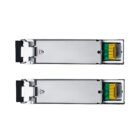
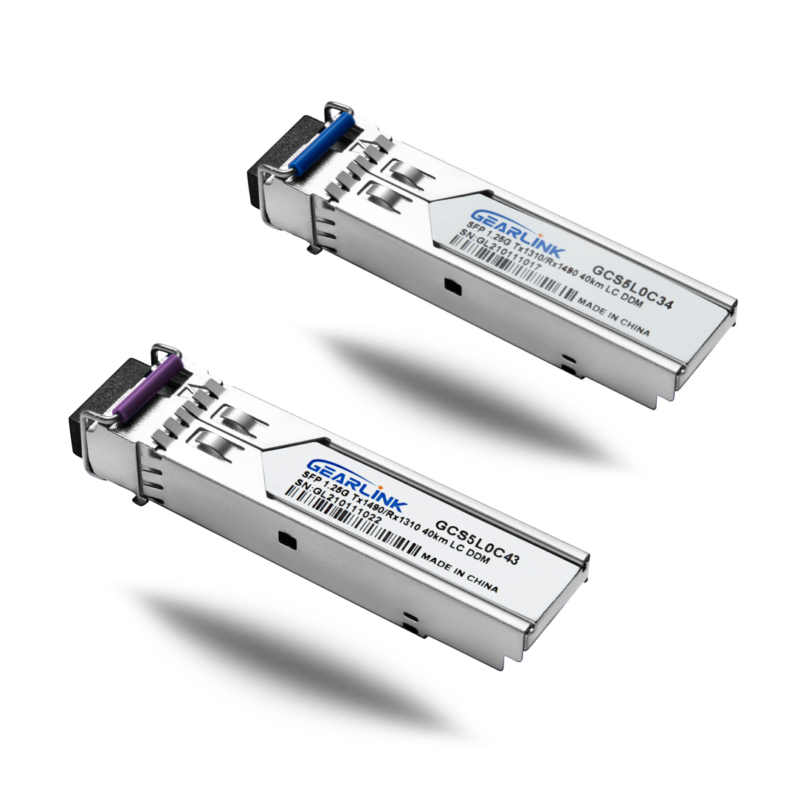
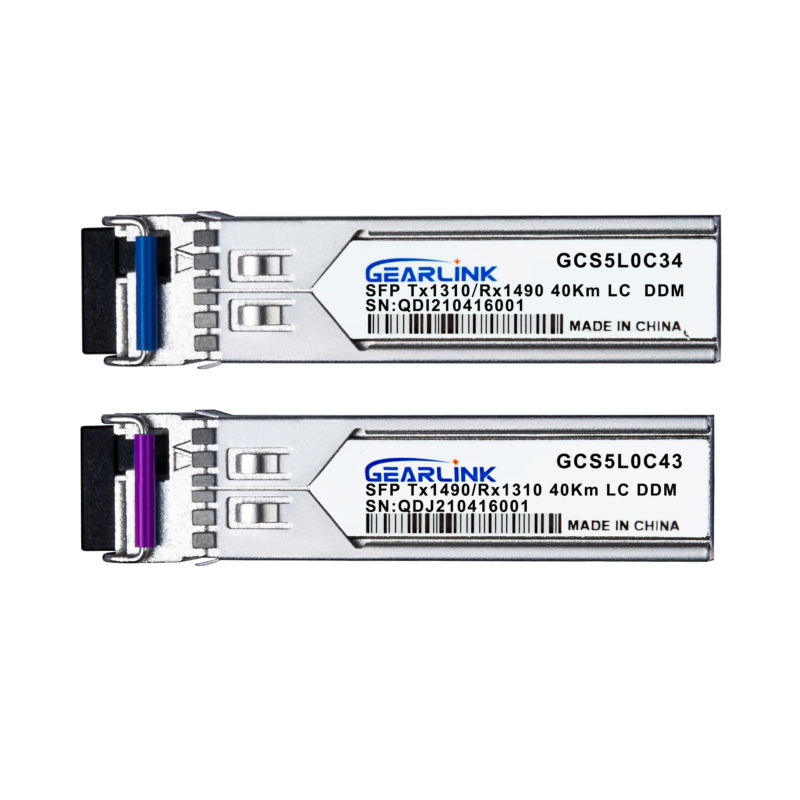
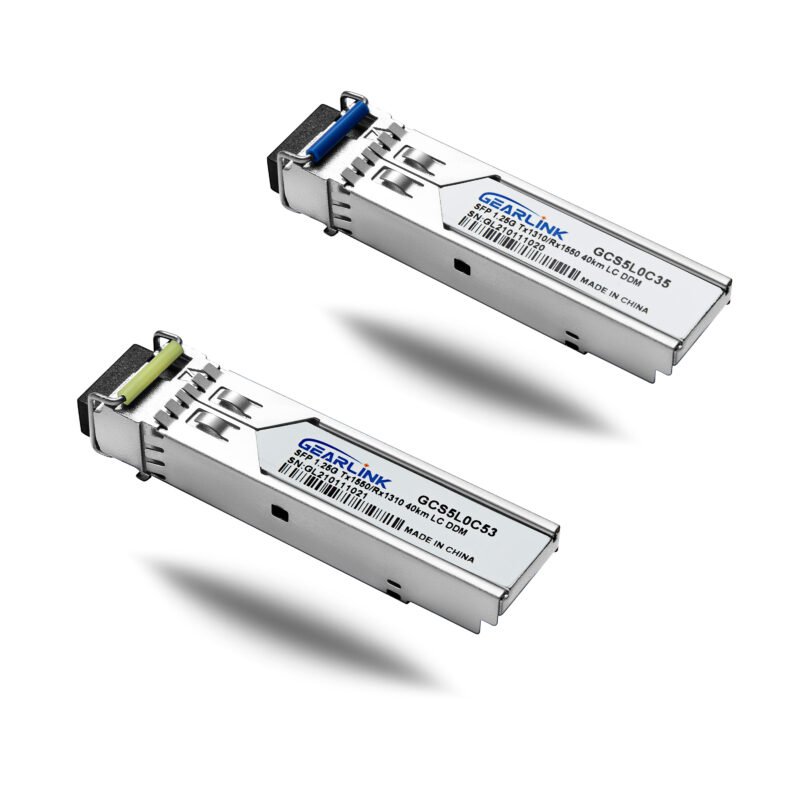
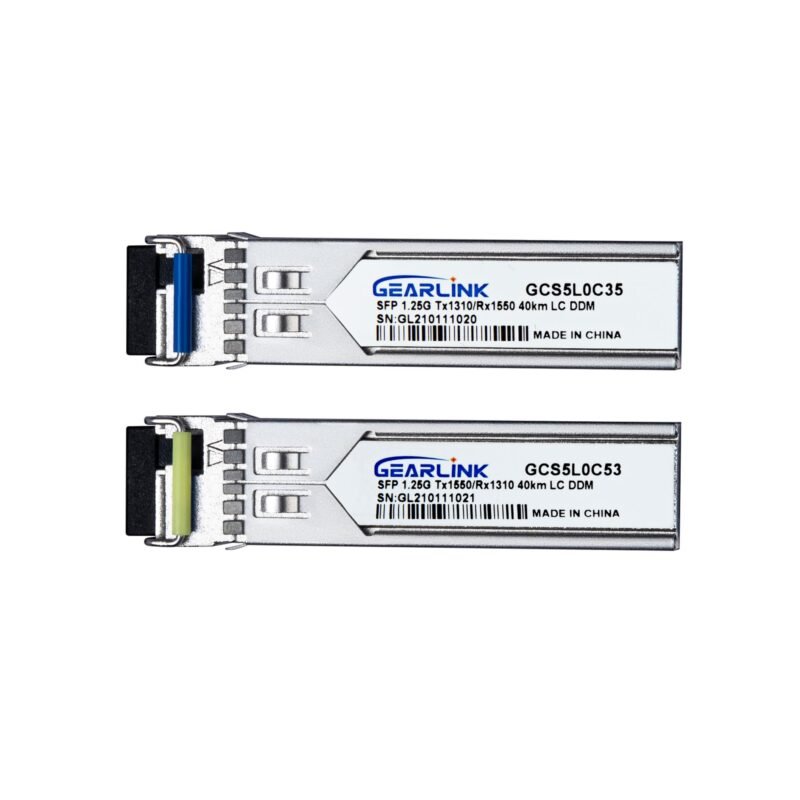
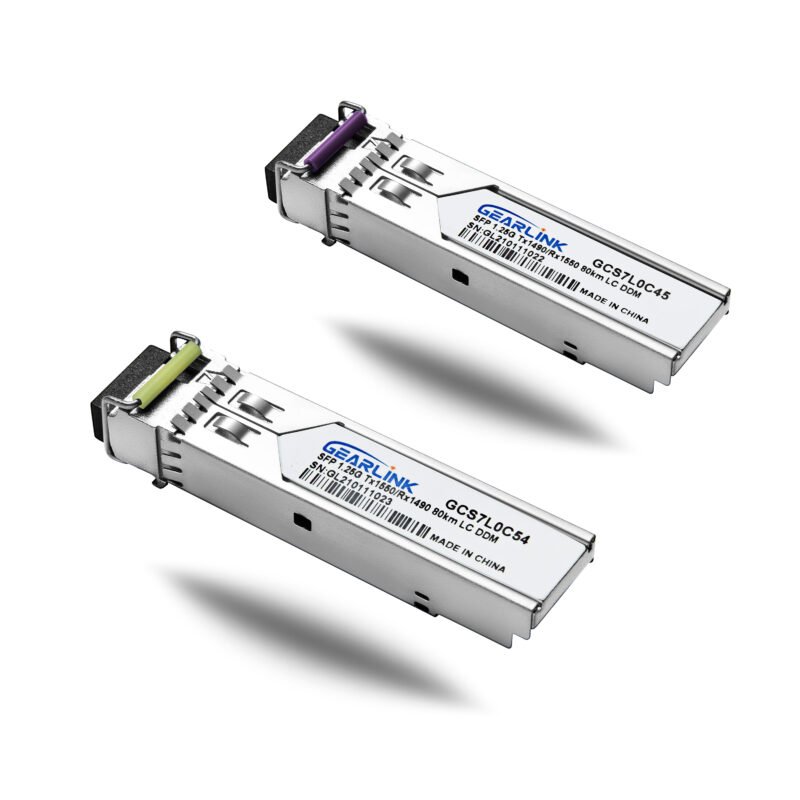
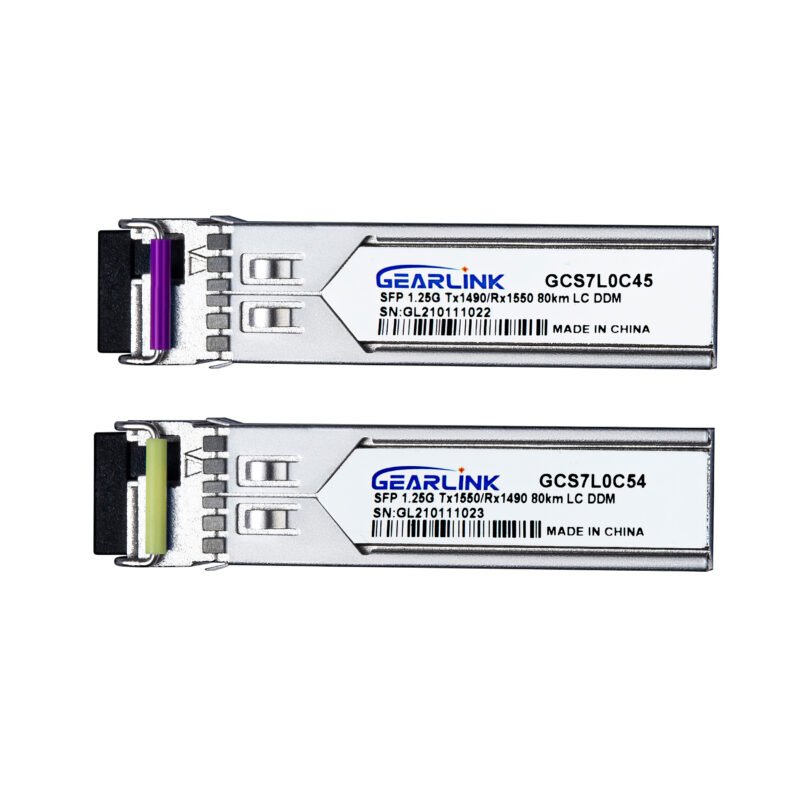
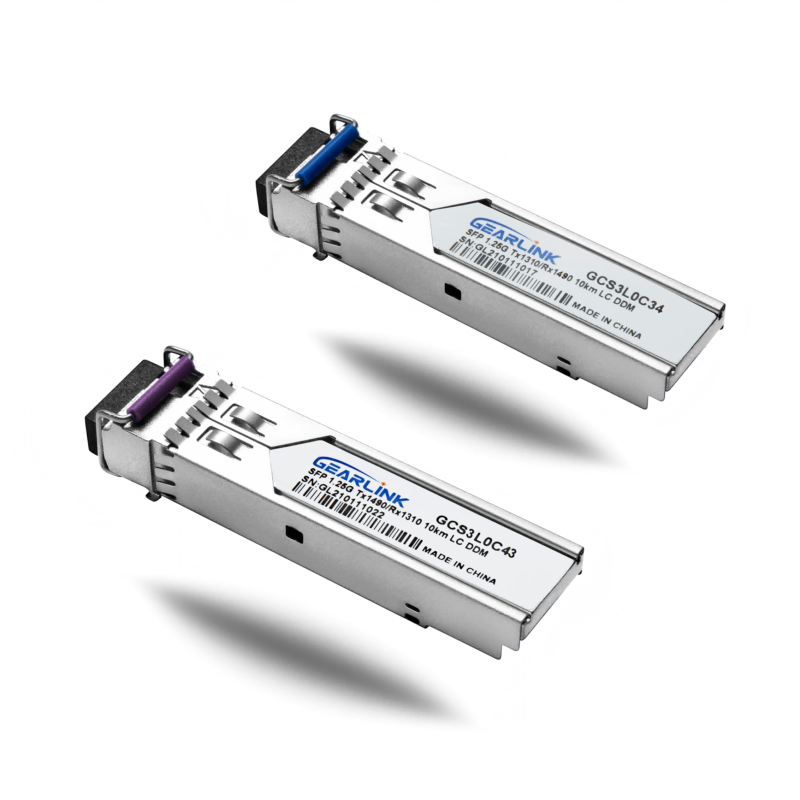
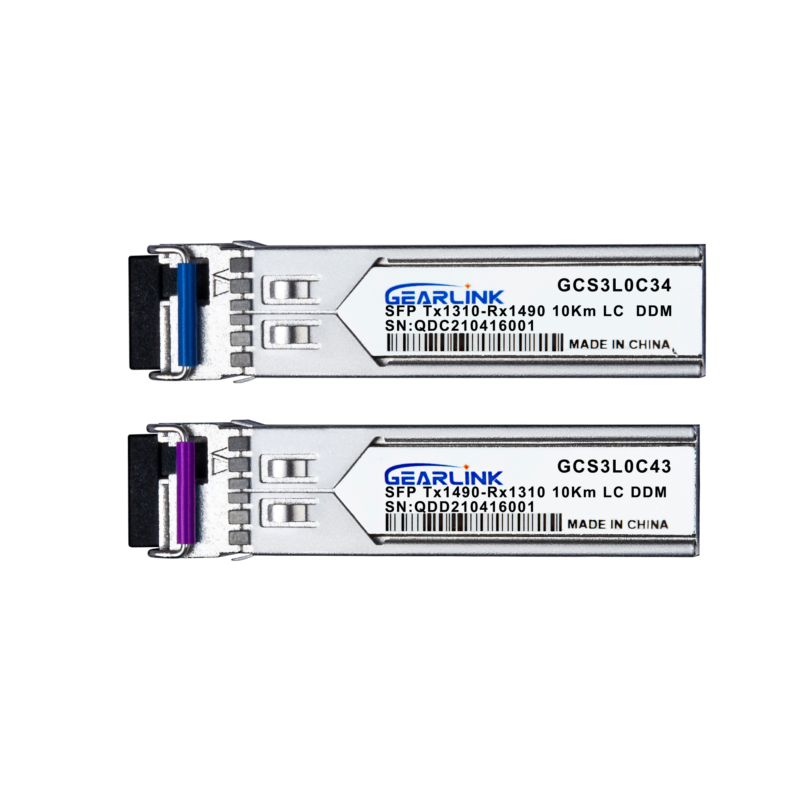
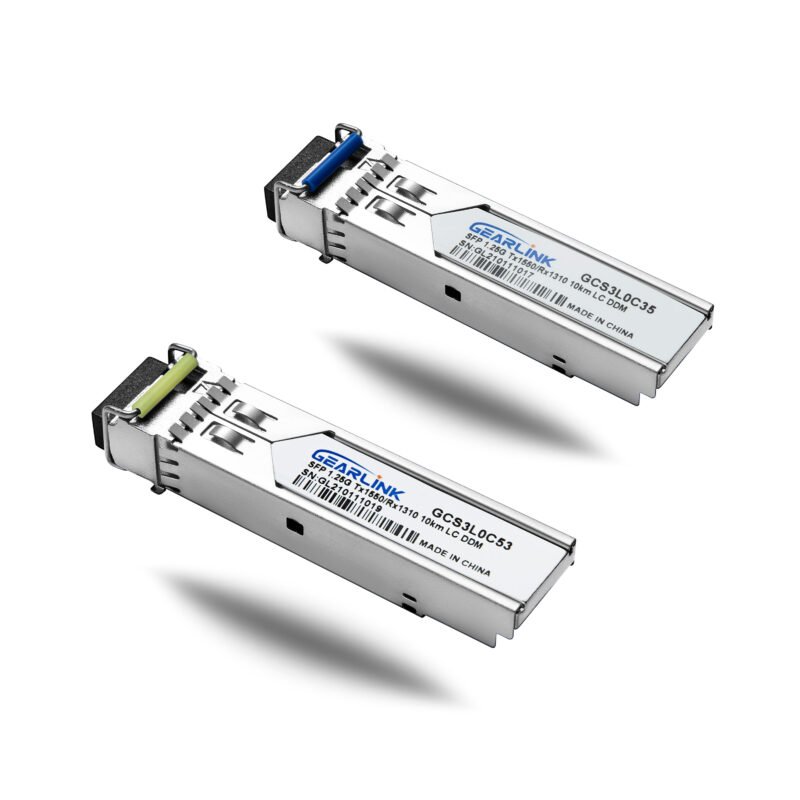
Reviews
There are no reviews yet.